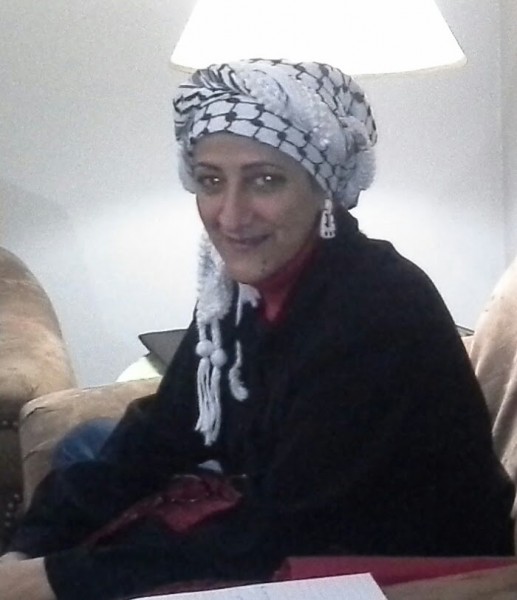Immigrant Heritage Month Profile: Meet Wafa Haddad
In celebration of Immigrant Heritage Month, this series features profiles of community members who have immigrated to Grand Rapids.
For Immigrant Heritage Month, I asked several friends and connections who immigrated to Grand Rapids to share a little about their heritage. The goal of this endeavor is to help educate and inform myself and others in the community about the rich cultures of our neighbors. And, to celebrate the ways that these individuals have contributed to what we know as American culture today. I asked each of them the same questions and their responses are all featured here in the Profile section of The Rapidian.
Wafa Haddad is the director and founder of Noor’s Heaven of West Michigan Services. I met her in the summer of 2012 after signing up to take Arabic classes with her at Tigerlilly Arabic Language Academy. I have great respect for her and her achievements—and her contributions to the community. We’ve remained connected over the years, and when I asked for her input, she provided a wonderfully detailed response.
I asked Haddad: What is an important part of your culture/heritage that you want to preserve in your life and also want to share with American culture? And, what in American culture do you embrace?
Haddad said: “Many people have dreams. A rare few turn their dreams into reality by establishing goals and combining talent, courage, and a great deal of hard work. My name is Wafa Haddad, director and founder of Noor’s Heaven of West Michigan Services since 2012. My professional career might best be described as eclectic. As a director to the organization, I provide services to Arab and Muslim individuals and families with comprehensive humanitarian, social, and educational programs that help women, children, men, and families impacted by poverty or violence and language barriers. Collaborations with other governmental and local organizations have helped me effectively toward my organization’s goals.
I was born and raised in Syria. I had a happy childhood living with my parents and with my siblings. I was the oldest of all my siblings and, therefore, the leader. When I came to the USA, Grand Rapids, Michigan in 1994, I went through some of the phases of culture shock that affected me in the first year. I had to find my way to live independently. Trying to maintain my cultural identity was a challenging task in that time, because I was exposed to the western world, which was a big difference between these two regions. Language, communication style, and business settings were hard to learn in the USA due to our high-context way of speaking.
Also, culinary culture was awkward to me due to the actual preparation, presentation, and eating of food. As we know, the Arabic cuisine contains a combination of a rich diversity of Mediterranean, Middle Eastern, and Indian spices.
If I want to preserve part of my culture in my life, it is food and art. I believe there are a lot of benefits to preserving cultures, ethics, and traditions. (Just like any other thing which has pros and cons). There's pride (which, again, can be good or bad depending on how it's used) that can drive success in ways that individual identity can't. Also, life would just be so boring without such things. These different elements are what promote and drive diversity, which, in turn, promotes all sorts of innovation. If everyone ate the same type of foods, didn't celebrate holidays, wore the same type of clothes, lived in the same kind of cities all across the world, the world would be a pretty boring place.
As an Arab-American business-woman, I truly embrace several American traits, such as 'time orientation,' direct communication, and problem solving. I have learned that time is valuable and must be used carefully and productively. Being 'on time' in both academic and social settings is important to me. In addition, when problems arise between my clients and their services, I learned to discuss them openly and solve them.
I am proud of my life. I am a strong and dedicated woman. I encourage everyone to teach their culture, their traditions, food, and healthy living. Be a patient and loving person. Many newcomers and refugees experience culture shock in some way when they are here. Be a culturally effective person; try to see the world from a heavenly vision and try to imagine how they see you. Understanding the new culture and finding a way to live comfortably within it while keeping true to the parts of your culture that you value, will help you overcome culture shock."

A core service of the Grand Rapids Community Media Center



